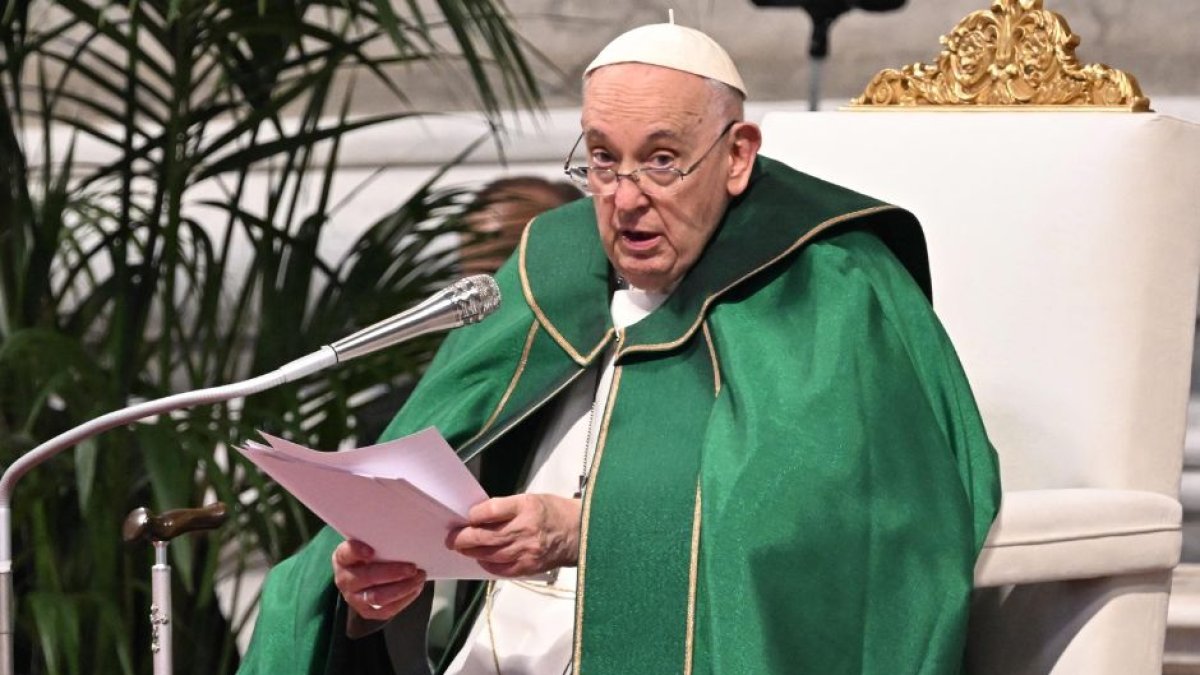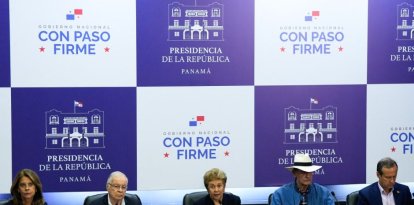Pope Francis allows blessing for homosexual and civil couples as long as it is not confused with marriage
The Supreme Pontiff explained that these forms of blessing "express a supplication to God."

El papa Francisco | Cordon Press
Pope Francis issued a statement explaining that, when asked by two people to be blessed, even if their status as a couple is "irregular" - for example, it is a homosexual union - it will be possible for the ordained minister to give his consent and blessing. The pope's position was given in response to a series of questions posed by the cardinals.
However, the Supreme Pontiff stressed that the blessing will be allowed as long as "this gesture of pastoral proximity does not contain elements even remotely similar to a marriage rite." He explained that there are various moments in which people spontaneously come to ask for a blessing, both on pilgrimages and in sanctuaries and also on the street when they meet a priest. Furthermore, his holiness not only referred to same-sex couples, but also included all those couples that the Church considers to live in an "irregular" manner.
He pointed out that at that time, priests can turn to the liturgical book, De Benedictionibus, which provides a series of blessing rites for people including: the elderly, the sick, participants in catechism or in a prayer meeting, pilgrims, those who begin a journey or voluntary groups and associations, etc... He stressed that such blessings are addressed to everyone and no one can be excluded.
"These forms of blessing express a supplication to God"
"In these cases, a blessing is imparted that not only has an ascending value, but is also the invocation of a descending blessing from God himself on those who, recognizing themselves helpless and in need of his help, do not claim the legitimacy of their own status, but pray that all that is truly good and humanly valid in their lives and relationships, be invested, sanctified and elevated by the presence of the Holy Spirit," the pope wrote in the statement, Fiducia supplians, published by the Vatican.
Fiducia suplicans opens with an introduction by the prefect, Cardinal Víctor Fernández, who reflects on how same-sex unions were being addressed by the Church. Likewise, the Pope maintains that "when the prayer of blessing is requested by a couple in an unorthodox situation, even if it is conferred outside the rites provided for by the liturgical books, this blessing will never be carried out at the same time as the civil rites of union," nor in connection with them. Not even with the clothes, gestures or words typical of a marriage. The same applies when the blessing is requested by a same-sex couple."
"These forms of blessing express a plea to God to grant those helps that come from the impulses of his Spirit – what classical theology calls 'actual graces' – so that human relationships can mature and grow in fidelity to the message of the Gospel, free yourself from your imperfections and frailties and express oneself in the ever greater dimension of divine love," adds the pope's statement.
Finally, the highest representative of the Catholic Church insisted that marriage refers to the "exclusive, stable and indissoluble union between a man and a woman, naturally open to begetting children."

























